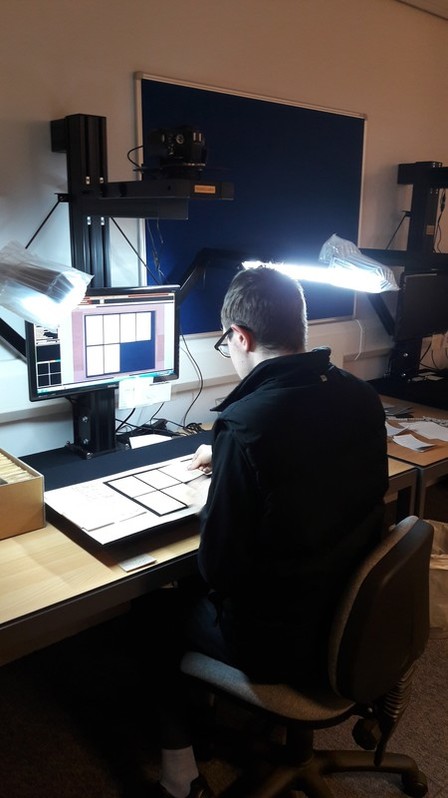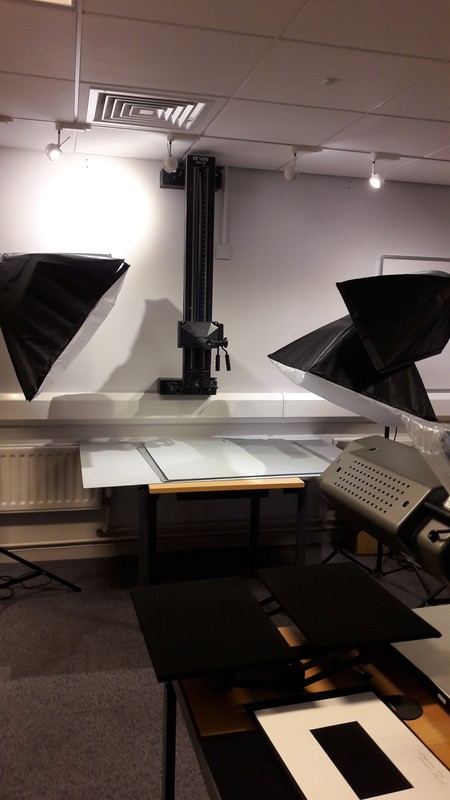The Future of Archives is Digital
http://webarchive.nationalarchives.gov.uk/+/http://www.nationalarchives.gov.uk/archives-sector/projects-and-programmes/consultation-on-a-new-vision-for-archives/
The vision needs to set out a future where archives confidently manage digital as well as paper records and where access is expanded to new fields of research and a diverse audience
The vision must address the financial challenges archives face.”
http://www.nationalarchives.gov.uk/archives-sector/projects-and-programmes/strategic-vision-for-archives/
In its introduction it states that
- TRUST – “people and institutions trust in the authenticity of records and how they are preserved and presented”
- ENRICHMENT – “archives enhance and enrich our society intellectually, culturally and economically”
- OPENNESS – “archives cultivate an open approach to knowledge and are accessible to all”
The plan would address 3 vital themes of digital capacity, resilience and impact. Within the archive sector digital capacity would be developed so as to make it easier to find both paper and digital records, and increasing resilience would encompass more Archive Accreditation, open up the archive sector to new skills and a more diverse workforce, and increase income generation and support innovative service models.
Whilst in general agreement with its aims, my feelings about this document are mixed. On the one hand I applaud its identified ambitions but deplore the fact that it talks grandly about “User Expectations” without any significant user input nor any plans it seems to find out what exactly the user, either existing or future, actually wants or needs. It is all very much “if we build it they will come” with not a hint of market research!
The Future is Digital?
It is a complicated issue. As users we have not had a say in what has been digitised and to a large extent are expected to be grateful for what we are given. It is all very Oliver Twist.
I feel it is time for Users to discuss the whole issue of digitisation and its implications.
We know that the digitisation of parish registers, for instance, has generally reduced footfall in those record offices which have entered into licensing agreements with commercial companies.
Are we by asking for increased access online condemning record offices and archives to cuts and reduced service? Did we in fact ask for it directly or was it just an opportunity grabbed?
Are we in fact complicit in reducing archival services by not supporting or using them?
In addition are we the genealogical and historical research community condoning the reduced standard of research which the assumption that “it is all on the internet” generates?
How can we change this and educate the average researcher that there is so much more out there if archives are difficult to access and what is digitised is not decided by the genealogical community ie the users?
Do we prefer archives to do their own digitisation to guarantee that we the users have access without strings? How could this be funded?
Who will decide what is to be digitised and by what means?
This is fine as long as that access is actually possible although there have been occasions when this was not. Some archives will allow production of the original document if access is not possible online but this is not always the policy and can be problematic if it has been placed in long term storage from which it is difficult and expensive to be retrieved.
The argument is that digitisation and making records available online will attract new users (for instance in other countries) but is this perhaps a case of attracting new paying customers at the expense of the existing ones?
There are considerable costs involved in putting a digital dataset online but when is the break-even point reached and how much profit do the commercial companies make?
Certainly some users feel “ripped off” by the commercial companies.
Should the commercial companies be paying more attention to user education – in fact who should be responsible for educating users as to how to use the datasets effectively and responsibly for their research?
Should this be a function of the archives which hold the originals or the commercial genealogy sector (and in this I include professional genealogists and archival researchers)?
It seems to have been a bit of a battle to actually get complete source citation information and information about datasets included on some of the websites and there are still some where it is woefully lacking. Should this be a component of the licensing conditions?
Another area of concern is the quality control of digitised images. This seems to be based on mechanical sampling making it inevitable that mistakes, and missed images will slip through the net. This is even before transcription and indexing errors come into play.
Digital access via these subscriptions means that access now has to be via the computers available onsite and there seems to be a lack of understanding of how professional researchers both academic and otherwise work nowadays. Rather than pore over the original documents making notes and transcripts onsite many of us tend to photograph where possible so that the digital photos can be viewed and transcribed in our office or home. These photographic images are in colour and at a relatively high resolution and can be manipulated electronically to zoom in, change the colour palette or merely view on a larger screen to aid transcription.
Onsite subscription access to digitised images often offers none of these advantages particularly when using onsite computers with which we are unfamiliar and where the only option for obtaining multiple images is to photograph the screen or make a large number of prints as downloading or sharing via email is not an option offered.
Should attention be given to making these subscriptions more user friendly?
Should the accessibility options available for the physical documents such as UV lamps to pick out faint handwriting be replicated in the software tools offered by commercial companies as a matter of course?
Should onsite computers at archives be of a higher standard to compensate for difficulties eg larger monitor screens?
Should difficult to read documents be scanned at a higher resolution to make it easier to zoom without blurring?
And of course there is the elitist nature of the whole issue given the aim to open up documents to new users expressed in “Archives Unlocked”. Who benefits from this hiving off certainly not the genealogical community or the “personal interest” public?
I call on you all to become more vocal, questioning and participatory in your use of archives and digitised material.
Persuade your local archive or record office or museum or library to set up a User Group to discuss user issues including archive strategy or apply to join it if it already exists. Find out who is representing you and contact them with your concerns.
Keep up to date with what is going on in the archive and library sector – you don’t want to suddenly wake up to find your archive access has changed without your knowledge.
Encourage plain speaking and the cutting through of jargon and waffle.
Above all demand the same high standards of archives and commercial companies as we apply to our own genealogical research.
You can also follow Jacqui on Twitter at https://twitter.com/genealgenie


 RSS Feed
RSS Feed
